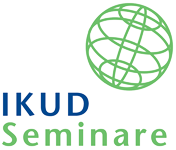Our Positon, Approach, Aims and Methods – Why We Do What We Do
Increasing globalisation and multiculturalisation of our living and working environments present us with new challenges that require intercultural competence. Intercultural learning is facilitated systematically through intercultural training.
Intercultural Education as Sensitisation, Orientation and Acquisition of Competence
Intercultural learning includes sensitisation, orientation and the acquisition of intercultural competence.
Sensitisation refers to both the development of awareness of cultural aspects which affect human behavior and to the improvement of perceptiveness regarding cultural similarities and differences. Successful sensitisation results in the possibility for learning and mutually beneficial cooperation.
Orientation refers to practical and theoretical knowledge: knowledge about a specific country and its people, sources of information and references, knowledge of culture and communication theories, attitudes and values, and knowledge necessary for continued education (e.g. online).
The concept of competence refers to abilities, behaviors, and “know-how”. Like other abilities, intercultural competence consists of
- Practical competence (e.g. everyday competence or strategic cultural competence)
- Social competence (e.g. empathy, communicative competence, expressiveness, or intercultural teamwork skills), and
- Self competence (e.g. cultural self-reflection and the ability to acclimatise to new intercultural contexts).
While intercultural competence and intercultural orientation can be learned and acquired in the medium term, the development of an “intercultural identity” is a long-term learning process.
The Function of Intercultural Training
Most of all, intercultural training is conducive to skills development: skills in dealing with people from different cultures, with expatriates and immigrants, but also appropriate behavior in foreign countries, as well as in other intercultural contexts (e.g. international conferences). Intercultural training also has an impact on cultural learning, specifically on the awareness of one’s own cultural imprint and identity. Intercultural training also includes transcultural education.
Target Groups for Intercultural Training
- People who work in a foreign country in a business context (e.g. foreign aid workers, specialists, managers, consultants, those in the armed forces),
- People who, for personal reasons, spend a lot of time in foreign countries (e.g. because of family members or as tourists),
- People working with cultural exchange programmes (e.g. students, interns, artists, scientists),
- People who advise and consult expatriates and visitors (e.g. students, migrants, tourists), and
- People who are involved with employees of businesses operating on the international level (e.g. in multinational companies, international organisations, religious communities, or other institutions).
What We Offer
Sensitisation to culture and cultural self-reflection are basic skills that are essential to the development of an “intercultural personality”. Action-oriented strategies tailored to specific countries and regions enable people socialised in different cultures to interact in an appropriate and constructive manner. The necessary intercultural skills can be acquired and strengthened by means of the following:
- Seminars – Small groups (up to 12 participants) work on the development and implementation of knowledge gained during the seminar
- Workshops – Moderated training courses in which participants acquire the theoretical foundations which enable further development of their own concepts, approaches and activities
- Training – Exercises customised to target groups with the goal of improving intercultural skills
- Lectures – Concrete and comprehensive talks on specific topics
- Consultation – After a thorough needs assessment, problem-solving strategies on a cultural and business level are developed and implemented on a teamwork basis
- Coaching – Individuals or groups are counseled and supported according to their special needs
Over the years, IKUD® Seminare has developed and honed “building blocks” (modules) for intercultural education. Customised training activities are designed using these elements.
These “building blocks” (modules) comprise exercises focusing on:
- Experience with cultural contrasts,
- Cultural self-awareness (e.g., self-observation and self-exploration),
- Cultural awareness of others,
- Experience with intercultural interactions,
- Transcultural experience.
Specific methods we use include:
- Intercultural case studies (e.g. analysis of critical incidents, “culture assimilator”, or incident reconstructions using multiple perspectives),
- Intercultural exploration (as real, audio-visual, or simulated explorations),
- Complex simulations (e.g. role-play, intercultural interaction games, the Five Cultures Game, etc.), and
- Exercises training various types of intercultural communication (perception exercises, alienation exercises, etc.).
Additionally, these practical exercises are:
- introduced with a short theoretical explanation about the practical application of the exercises
- supplemented with country and culture specific sources of information (including online resources), and
- supplemented with instructions on additional training possibilities, especially for specific countries and cultures.
You are reading: Our Approach to Intercultural Learning and Training

 © Robert Kneschke /Fotolia
© Robert Kneschke /Fotolia




